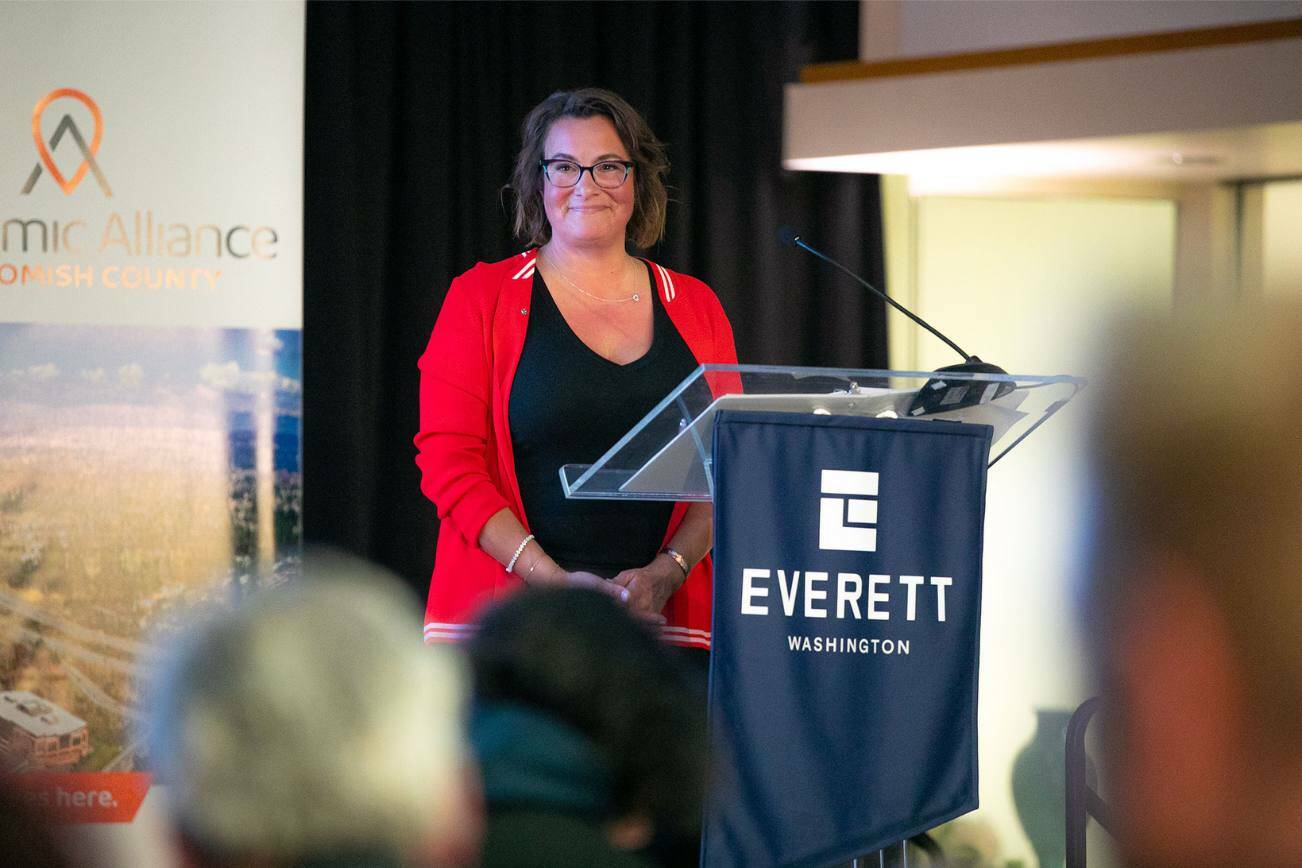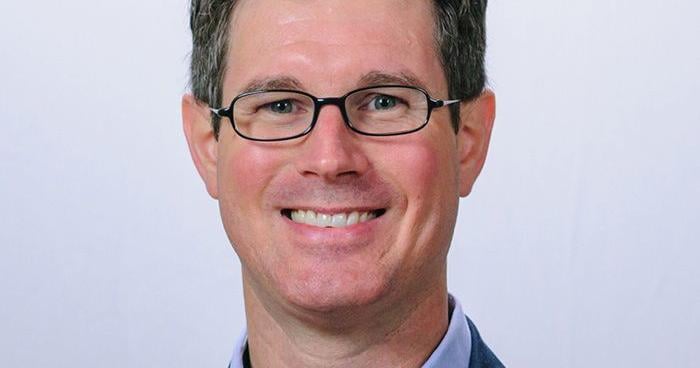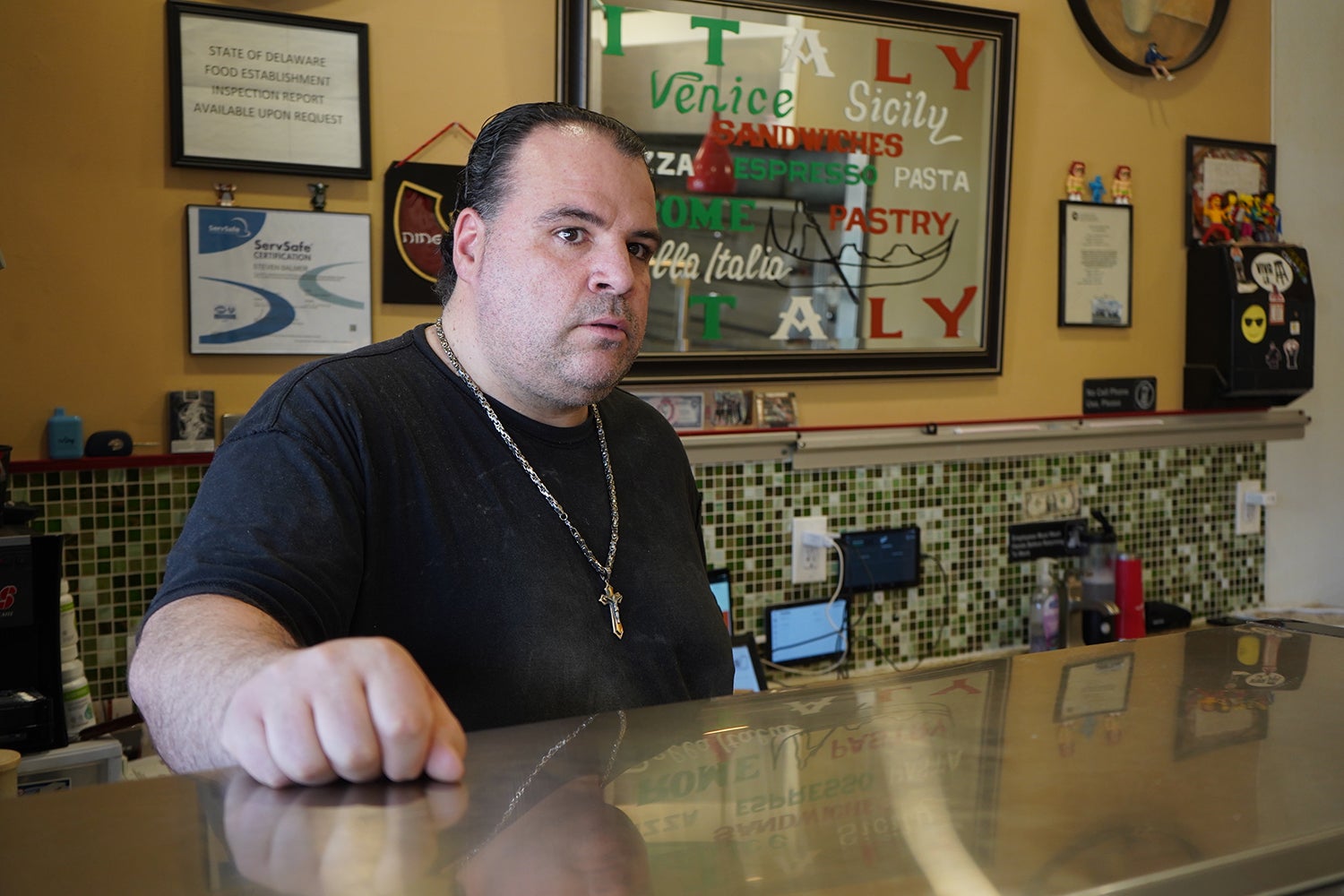Jobs
Everett mayor: 55 jobs could be affected by budget cuts | HeraldNet.com

Everett Mayor Cassie Franklin steps back and takes in a standing ovation after delivering the State of the City Address on March 21 at the Everett Mall. (Ryan Berry / The Herald)
EVERETT — Fifty-five city positions could be affected by upcoming budget cuts, Everett Mayor Cassie Franklin said Wednesday in her budget address to the public and City Council.
The city would cut 31 of the positions via a mix of buyouts, eliminating unfilled positions, transfers to non-general government positions and layoffs. Twenty-four positions would see lesser effects, including reductions in hours and mandatory furloughs.
Departments facing reductions include city administration, City Council, legal, finance, facilities, code enforcement, police, communications and engagement, human resources, libraries, parks, economic development and emergency management, said city spokesperson Simone Tarver in an email Thursday.
The 2024 budget provided for 744.4 full time-equivalent positions in the city’s general government departments. That number would drop to 727.2 in the mayor’s proposed 2025 budget, with a total of 1,280 full time-equivalent employees citywide. It’s equivalent to 6.3 general government staff for every 1,000 residents, compared to 7.1 in 2014, Tarver said.
The layoffs and reductions would help balance the city’s $12.6 million general fund deficit in 2025, and reduce another $10 million from the 2026 deficit. The deficit is projected to increase to $32.9 million by 2030.
Even with its difficulties, however, Franklin said the city is seeing strong revenue in self-sustaining departments like transit and utilities, with increased construction and manufacturing bringing in higher than expected sales taxes and business and occupation taxes.
“The general fund challenges we’re experiencing are unfortunately common, impacting nearly all property tax-reliant entities,” Franklin said in her address. “That includes cities, counties, fire districts and our public schools. These challenges are symptoms of larger issues related to how public services are funded in the state of Washington. But we live in a very dynamic city, with compassionate and hard-working residents and a thriving, diverse economy. Everett is strong.”
Everett went to voters for a property tax levy lid lift for the first time in August to help pay for city services. The ballot measure would have increased the city’s levy rate from $1.52 per $1,000 of assessed value to $2.19 per $1,000. The average homeowner would have paid an additional $28 per month, according to a city estimate. Opponents of the measure said the city was overspending and needed to increase efficiency.
Voters resoundingly rejected the proposition, with 59% against.
“Though voters decided against the levy lid lift, their decision provided clarity,” Franklin said Wednesday. “Our residents want to maintain current tax levels, which means discontinuing and reducing lines of work we know residents benefit from, but we simply cannot afford.”
Franklin cited non-general government entities like Everett Transit, primarily funded by grants and sales taxes, the city’s two public golf courses, funded by user fees, and water service, funded by utility fees, as successful programs. But the money used for these programs cannot be used for general fund programs, like police, the fire department and city staff.
The mayor also highlighted the possible new multipurpose stadium that would host the Everett AquaSox as a project that could bring millions of dollars to the city. Construction of that facility — at either a new downtown site or at Funko Field’s current location — would not be reliant on general government funds, Franklin said in her address, where the city’s deficit issues currently exist.
In a fiscal advisory committee meeting for the stadium Wednesday, committee members said a proposal for funding options would likely be presented to the council in early December.
Everett’s deficit issues are not a new problem.
In 2001, voters passed a statewide ballot initiative to limit property tax levy increases to 1% annually, unless voters approve a greater increase — like the one on the ballot in Everett in August. Since then, the city of Everett has faced a structural deficit in the general fund, as property taxes are the most consistent form of income for municipalities and the rising cost of goods and services outpaces the 1% limit. In 2025, one-quarter of the city’s general fund revenue is projected to come from property taxes.
Because of the levy limit, the city has consistently had to make cuts for over two decades, a proposition that has become increasingly difficult as the city grows and the need for services expands.
Council members broadly expressed support for the mayor’s address while acknowledging the city’s financial challenges.
“The decisions this round have been absolutely excruciating, I feel it too,” council member Paula Rhyne said. “I know looking through that budget binder is going to be a grim experience. I also appreciate your reminder about how the city is not alone in this trial we are facing, that there’s been 60 cities before us that have asked voters for a levy lid increase. To me, it goes to show how long we have waited to ask for voters to throw us a lifeline, and that it also shows that we have made as many cuts as we possibly could before asking.”
The city’s finance director, Heide Brillantes, will give a detailed briefing on the proposed budget at the City Council meeting Nov. 6. The council is expected to vote on the final budget in December.
Will Geschke: 425-339-3443; william.geschke@heraldnet.com; X: @willgeschke.









